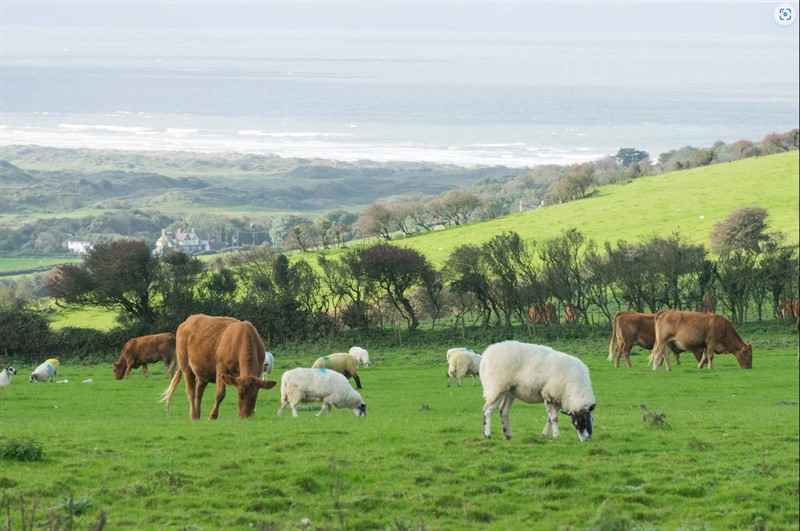BTV-3 - an infectious, non-contagious, vector-borne viral disease that impacts ruminants – was detected in the Netherlands in September 2023. Clinical signs in animals infected with the disease include fever, crusting and ulcers around muzzle area, swollen head, salivating and lameness. In the most severe cases, it can cause abortions, malformations, and death in animals. Clinical signs are not always present despite infection. In 2023, cases of BTV-3 were detected in Germany, Belgium and the UK too.
BTV-3 is spread by biting midges. During the ‘low-vector period’ in the winter months where midge activity was lower, cases lowered. However, as temperatures increased in the spring and summer, thousands of cases of BTV-3 have been detected across Europe.
What is the current situation in Europe?
Farmers, Governments and scientists have raised concerns over the recent surge in BTV-3 cases.
The Netherlands
The NVWA publishes updated case numbers each week. As of 26 September, 8707 cases have been reported (2072 clinical cases and 6635 PCR positive). Cases are spread across much of the country.
Three vaccines have been approved for use in the Netherlands via an accelerated procedure. The vaccines are available for both sheep and cattle. Vaccination is voluntary for producers but reports indicate that around 90% of the Dutch sheep population is vaccinated. Reports from the Netherlands indicate that vaccinated animals display lesser symptoms than unvaccinated animals. However, vaccinated animals can still show BTV-3 symptoms and become unwell.
Germany
23 cases of BTV-3 were detected in Germany in 2023. Since the start of 2024, the country has had more than 10,915 detections, which were mainly in the West of the country initially. However, over the past weeks the virus has been spreading Eastwards. The Federal Research Institute for Animal Health anticipate that more cases will be reported over the course of the year. German producers have access to three vaccines.
France
BTV-3 was confirmed in France on 8 August in sheep farms in Nord, Aisne and Ardennes. As of 3 September, 342 outbreaks had been recorded, spread across the following regions: Aisne, Ardennes, Haute Marne, Marne, Meurthe et Moselle, Meuse, Moselle, Nord, Oise, Pas-de-Calais. France has implemented a free, voluntary vaccination scheme with 6.4 million doses available (1.1 million single doses for sheep and 5.3 million doses for cattle who receive two injections). 2.5 million doses have been delivered to vets already and the vaccination campaign officially runs until the end of December. Industry is already calling for more vaccines to be ordered.
Belgium
3601 cases of BTV-3 have been reported across Belgium this year. In 2023, only 6 cases were recorded. Belgium’s Ministry of Agriculture has declared a crisis in the cattle and sheep farming sectors – this has been done to facilitate additional support measures for farmers. Belgian farmers also have access to vaccinations for their animals.
Luxembourg
Since 1 August 2024, a total of 995 animals (844 cattle, 141 sheep, 8 goats and 2 alpacas) have tested positive for bluetongue across 416 farms. The country has started its vaccination campaign, and since 9 August 2024, 240,000 doses of vaccine have been delivered and 87,450 doses distributed to veterinarians.
Denmark
Denmark confirmed their first outbreak of BTV-3 in sheep and cattle in Toender in southern Denmark on 9 August. 449 outbreaks have now been confirmed with 77 suspected outbreaks. Vaccination is permitted in Denmark, with Statens Serum Institut (SSI) (governmental public health and research institution under the Danish Ministry of Health) confirming that the vaccines have arrived in the country and can be ordered by vets.
Switzerland
On 30 August Switzerland confirmed the first cases of BTV-3 in the country - two sheep on a farm in the canton of Jura and in one sheep in the canton of Solothurn. Since then, 306 cases have been reported (128 bovine, 1 goat, 176 sheep and 1 companion animal).
The Czech Republic
On 6 September, the Government in a press release that a breeding ram on a farm in Jindřichovice in the Sokolovsk region (West of the country) had tested positive. The ram was showing typical symptoms of infection. Two more rams died on the farm. Since then, 25 cases of BTV have been confirmed across the West of the country.
Sweden
11 cases have been confirmed in the south of the country.
Norway
Norway reported the first cases of BTV-3 on 6 September in the south of the country. Since then, press reports outline that 'dozens' of cases have been reported.
Austria
On 13 September, BTV-3 was confirmed in Austria in cow in Vorarlberg (in the west of the country).
Portugal
Portugal has reported an outbreak of bluetongue disease on a sheep farm in the town of Torre dos Coelheiros. The disease infected 15 sheep with one fatality.
